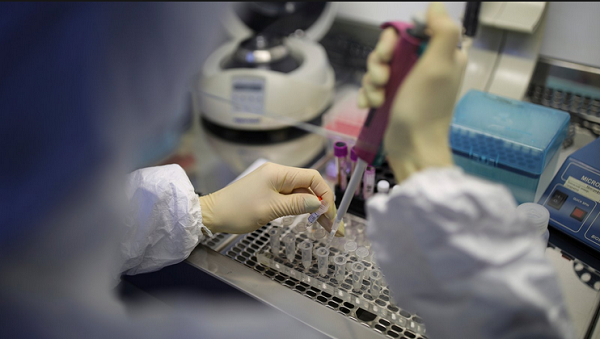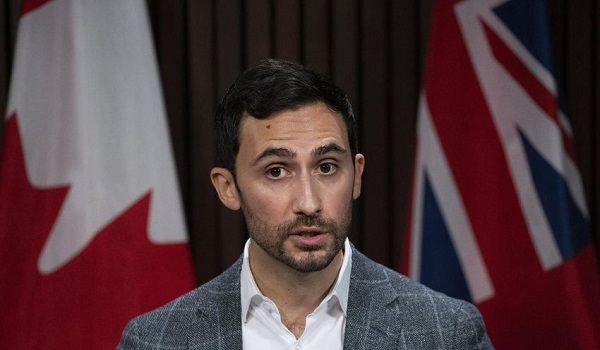Largest COVID-19 vaccine safety study was conducted. How safe it is?
After three arduous years spent combing through the health data of more than 99 million vaccinated people around the globe, Dr. Jeff Kwong was finally done.
He and a multinational team of 34 researchers had just completed the largest-ever study into COVID-19 vaccine safety — and yielded results the authors say confirm the safety of the vaccine.
“The bottom line message is that COVID vaccines are very safe,” said Kwong, the associate director of the Centre for Vaccine Preventable Diseases at the University of Toronto and a senior scientist at Toronto’s Institute for Clinical Evaluative Sciences.
“We’re doing these studies just to quantify — just how much is the risk? Because at the level of the population, when you are vaccinating millions, you will expect to see some of these adverse events,” he explained. “But you’ve also prevented a lot of adverse events in those who didn’t get the infection, because they got vaccinated. It’s always a tradeoff.”
Published in peer-reviewed medical journal Vaccine, the study confirmed previously noted adverse events after vaccination — and revealed “very rare” new ones. Here’s what they found.
Adverse events after COVID-19 vaccination
For the researchers, the task felt monumental — to first study the health records of millions of people across ten sites in eight countries, then track their progress for six weeks after COVID-19 vaccination for any complications. It amounted to roughly 23 million person-years of followup time.
The goal was to screen for 13 neurological, blood and heart related medical conditions, then check if there was a greater risk of their occurrence after vaccination.
These included preestablished risks, like myocarditis (swelling in the heart muscle), but also conditions never-before linked to the vaccine, like encephalomyelitis (widespread swelling in the brain and spinal cord).
It was only because of their massive sample size that they could test for these incredibly rare side-effects, Dr. Anders Hviid, a professor at Copenhagen’s Statens Serum Institut who lead the working group, told the Star.
The overwhelming majority of participants experienced no complications after vaccination, he continued: “The few serious side effects that we have observed in this and other studies have been rare.”
But there have been a few serious side effects. To the team’s surprise, they noticed a slightly elevated risk of the sometimes-fatal encephalomyelitis after a first dose of the Moderna vaccine. Out of more than 10.5 million individuals who got the shot, seven people developed the condition — instead of the expected two in a similar, unvaccinated population.
There was also a notable increase in myocarditis, an inflammation of the heart muscle, after the first, second and third doses of both the Moderna and Pfizer-BioNTech vaccines. Rates were highest after a second shot of Moderna, which resulted in a more than six-times increase in the expected occurrence.
While usually mild, studies suggest this reaction has led to at least 28 deaths worldwide.
Similarly, the risk of pericarditis, the swelling of the saclike tissue surrounding the heart, rose 1.7 times after a first dose of Moderna, and 2.6 times after the fourth dose. A third dose of AstraZeneca raised the risk 6.9 times.
So too did they find an increase in Guillain-Barre syndrome, a rare immune system disorder targeting nerves, after an initial dose of AstraZeneca. While 76 cases out of 10.6 million people were expected before vaccination, 190 cases were observed.
A first dose of AstraZeneca was also linked to 69 cases of cerebral venous sinus thrombosis, when a blood clot forms in major veins of the brain, out of 10.6 million people. In contrast, 21 cases were expected before the shot.
Should I get the COVID-19 vaccine?
If anything, the study has further confirmed the safety of the mainstream COVID-19 vaccines, said Dr. Fahad Razak, the provincial clinical lead at Ontario Health and Canada Research Chair in data-informed health care improvement at U of T.
Razak, who is unaffiliated with the project, noted that while the researchers discovered health risks to the vaccines, “these are extremely rare.”
“You don’t live your life worrying about being killed by lightning — and you’re more likely to be struck by lightning than to have an adverse event like encephalomyelitis,” which has less than a one-in-a-million chance of occurring after vaccination, he told the Star.
As the “largest, most robust” study of its kind, Razak hopes it could serve as the “definitive data” to assure the public that it’s far safer to get vaccinated than go without: “The complications of COVID-19 infection far outstrip the complications of having one of these adverse events from a vaccine,” he said.
Although the group’s project has wrapped for now, Kwong says the global vaccine network they developed — a web of participating health agencies around the world sharing the health data of millions of individuals — can be used to rapidly perform similar, massive vaccine studies in the future.
“There’s no vaccine that doesn’t cause any side effects,” he said. “It’s about knowing the risks versus the benefits.”
This article was reported by The Star















